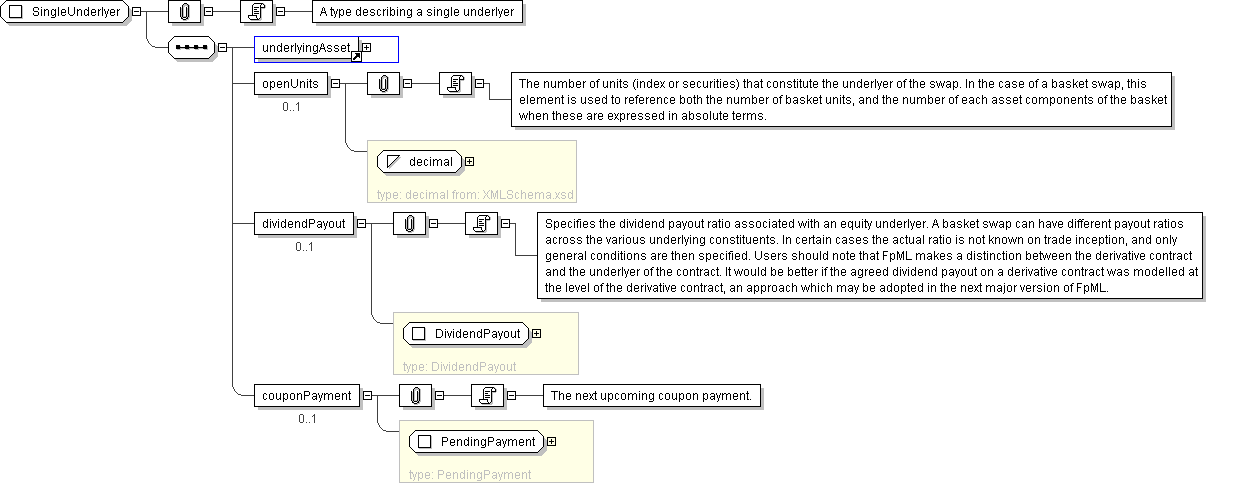
| Super-types: | None |
|---|---|
| Sub-types: | None |
| Name | SingleUnderlyer |
|---|---|
| Used by (from the same schema document) | Complex Type Underlyer |
| Abstract | no |
| Documentation | A type describing a single underlyer |
'The number of units (index or securities) that constitute the underlyer of the swap. In the case of a basket swap, this element is used to reference both the number of basket units, and the number of each asset components of the basket when these are expressed in absolute terms.'
'Specifies the dividend payout ratio associated with an equity underlyer. A basket swap can have different payout ratios across the various underlying constituents. In certain cases the actual ratio is not known on trade inception, and only general conditions are then specified. Users should note that FpML makes a distinction between the derivative contract and the underlyer of the contract. It would be better if the agreed dividend payout on a derivative contract was modelled at the level of the derivative contract, an approach which may be adopted in the next major version of FpML.'
